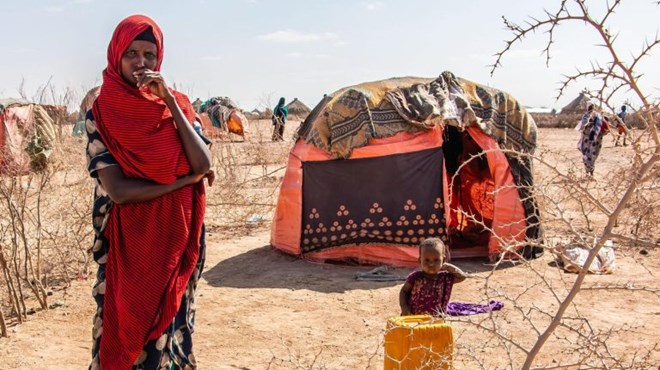
Sunday June 19, 2022

Severe drought has caused 7.4 million people to be food
insecure in southern and south-eastern Ethiopia, the UN World Food Programme
(WFP) has warned.
The WFP, in its latest Ethiopia drought response situation
report released Friday, said some 3.3 million people in the East African
country’s Somali region, some 3.09 million in the Oromia and 922,000 million
people in the Southern Nations, Nationalities and Peoples’ (SNNPR) regions are
food insecure due to the ongoing drought.
Close to 300,000 people have migrated in search of water and
pasture for their livestock, the WFP said. It disclosed that at least 2.1
million livestock have already perished, while another 10 million are at risk
of dying.
It said more than half a million students have been missing
school, either due to school closures or because their families need them to
help generate income or care for livestock during the critical time.
“While the seasonal short rains took place erratically in
March and April, they were far below normal and did not replenish water
resources. As a result, the food insecurity situation is expected to persist
due to an insufficient harvest,” it said.
WFP is on-ground, aiming to support 3.5 million people with
emergency food and nutrition assistance and through school feeding programs
while helping smallholder farmers adapt to climate change.
The WFP is supporting families with a combination of emergency
relief and resilience-building actions to save lives in the short term and
build resilience in the long term. It said food assistance is being delivered
in the Somali region, while malnourished children and mothers are treated with
specialized nutritious foods.
WFP also supports 12,000 agro-pastoralists with training on
small-scale, drought-resistant agricultural techniques and entrepreneurial
skills to help them build flourishing businesses and diversify their
livelihoods.
In the Oromia and the SNNPR regions, WFP is delivering
specialized nutritious foods to address acute malnutrition concerns and
providing nutritious school meals to more than 117,000 children whose families
have been affected by the drought.
It, however, emphasized that funding shortages have forced
it to cut food rations and the number of mothers and children receiving
treatment for moderate acute malnutrition in the Somali and SNNPR regions.